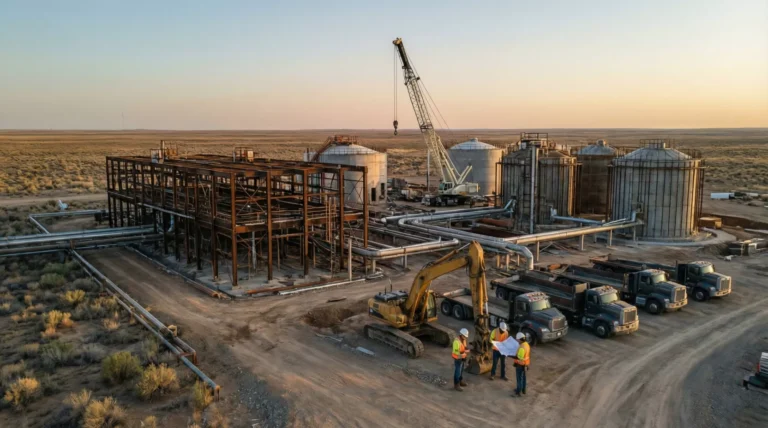
Adapture Renewables Deepens Partnership with Meta Through New 360 MW Solar Agreements in Texas
Adapture Renewables, Inc., a leading developer and owner-operator of utility-scale solar and energy storage projects, has announced the execution of two new Environmental Attributes Purchase Agreements (EAPAs) with Meta, the parent company of Facebook, Instagram, and WhatsApp. These agreements are part of Meta’s broader strategy to power its global operations with 100% renewable energy and further illustrate the expanding relationship between the two companies, both of which are at the forefront of the transition to a cleaner energy future.
The newly signed agreements between Adapture Renewables and Meta cover a total of 360 megawatts (MW) of solar capacity across two large-scale projects located in the Electric Reliability Council of Texas (ERCOT) territory. These utility-scale solar projects are expected to begin commercial operation in 2027 and represent a meaningful step forward in both companies’ clean energy strategies. For Adapture Renewables, the projects contribute significantly to its growing pipeline of solar and storage assets under development. For Meta, they mark a continuation of its aggressive pursuit of clean energy procurement to support the company’s rapidly expanding infrastructure, particularly its data centers.
As digital technologies like artificial intelligence (AI), cloud computing, and virtual reality continue to experience exponential growth, the energy demands of data centers have soared. In Texas and other high-demand regions, the need for resilient, sustainable, and large-scale energy sources has never been more pronounced. The increasing strain on electric grids has heightened the urgency to bring new renewable energy capacity online. Utility-scale solar projects such as those announced by Adapture and Meta are crucial not just for corporate sustainability goals, but also for stabilizing grid operations and mitigating greenhouse gas emissions.
The two new EAPAs expand upon the already successful collaboration between Adapture Renewables and Meta. In 2023, the companies executed three other renewable energy agreements, spanning multiple U.S. states and totaling more than 300 MW of capacity. With the addition of the 360 MW in Texas, the partnership now includes five separate agreements representing nearly 700 MW of contracted clean energy capacity. These projects are spread across three different U.S. states, underscoring the geographical diversity and strategic depth of the partnership.
“This expanded partnership reflects the trust and alignment we’ve built with Meta over time,” said Jesse Tippett, Vice President of Origination at Adapture Renewables. “By structuring long-term agreements that balance risk and value for both parties, we’re not only bringing meaningful projects to market but also enabling our partners to meet and often exceed their clean energy objectives. We see these agreements as more than transactions—they are collaborations that move the needle in the energy transition.”
Tippett emphasized that the nature of the partnership is mutually beneficial. Long-term environmental attribute purchase agreements provide energy buyers like Meta with predictable costs and carbon reduction benefits, while enabling developers like Adapture Renewables to secure the financial certainty necessary to build and operate high-capital infrastructure projects. These types of agreements are becoming an increasingly common and effective mechanism for scaling clean energy investment in the United States.
For Meta, the agreements are a continuation of its climate leadership and commitment to environmental stewardship. The company achieved its goal of matching 100% of its global electricity use with renewable energy in 2020 and has since continued to add new clean energy capacity to support its growing operations. Amanda Yang, Co-Head of Clean and Renewable Energy at Meta, noted the importance of strategic partnerships in maintaining that momentum.
“Meta is always looking for opportunities to bring new renewable energy to the grid, and partnerships like this help make that possible,” said Yang. “We’re excited to expand our relationship with Adapture Renewables through these new agreements and continue supporting projects that move the energy transition forward. These efforts not only reduce emissions but also contribute to the long-term sustainability of the regions where we operate.”
Meta’s clean energy strategy prioritizes adding new, additional renewable capacity to the grid—meaning the projects it supports are not simply existing assets but new infrastructure that contributes to greater overall supply. This concept of “additionality” is considered a best practice among corporations aiming to meaningfully reduce their environmental impact.
The Texas projects under the new EAPAs are designed with that principle in mind. The 360 MW of solar power will be newly built, interconnected into the ERCOT grid, and will contribute directly to the decarbonization of one of the nation’s most dynamic and rapidly evolving electricity markets. ERCOT, which operates independently from other U.S. grids, has become a hotspot for renewable energy development due to its competitive wholesale market, abundant land, and solar irradiance. However, it is also a market known for extreme weather volatility and tight supply-demand balances, making new renewable capacity especially critical.
The planned projects will not only help Meta meet its internal sustainability targets but also offer broader grid reliability and resilience benefits. These advantages are increasingly valuable in the face of escalating electricity usage, driven in large part by the proliferation of large-scale AI infrastructure and data centers, many of which are locating in Texas due to favorable regulatory and land-use conditions.
Adapture Renewables brings deep expertise to the partnership, with a proven track record of delivering solar and storage solutions that align with long-term sustainability goals. The company manages a growing development portfolio while also owning and operating existing assets across multiple regions. Their business model emphasizes integrated project development—from site origination to construction and long-term operations—which provides partners like Meta with confidence in project execution and performance.
These recent agreements also reinforce the growing trend of corporations playing a direct role in driving the clean energy transition. As governmental and regulatory action around climate change progresses at varying speeds, the private sector has stepped in as a powerful force for accelerating decarbonization. Companies like Meta, through direct partnerships with developers such as Adapture Renewables, are taking proactive steps to meet net-zero commitments, reduce operational emissions, and support broader societal energy needs.










